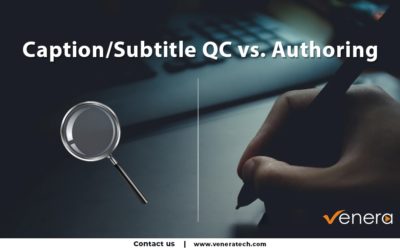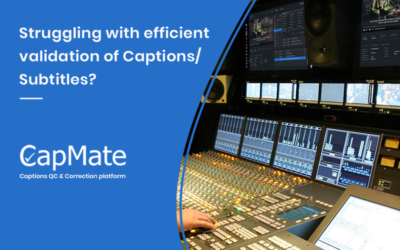Overview

Pulsar is the fastest, most comprehensive and versatile file-based Automated MEDIA QUALITY CONTROL system in the market. It automates quality check and control at every stage of the content life-cycle. With support for latest technologies such as HDR, IMF and 4K, Pulsar allows you to remain ahead of the curve by tackling the quality issues early and efficiently. What’s more, it’s incredibly simple to use! With support for all Broadcast/OTT formats along with wide range of checks, Pulsar is ready to be used in wide range of workflows including Broadcast, Production, Post Production, Media Services, Archiving and Over-the-Top.
Features & Benefits

Fast & Scalable
Fastest QC system in the market with up to 6x faster than real-time analysis speed for HD content and near real-time analysis for JPEG-2000 4K content. Faster QC results into lesser licenses for a given content volume with a direct impact on investment in the QC system. It also improves the workflow throughout with quicker access to QC results. You can also easily setup a verification cluster with multiple QC verification units for higher system throughout.
High Dynamic Range
Perform QC of your Dolby-Vision, HDR-10 and HDR-10+ content. You can perform a variety of metadata validation checks along with detailed reporting of HDR parameters. You can also cross-check the video properties between the HDR metadata and the video essence. The HDR toolset in Pulsar is the most comprehensive and can significantly aid in setting up & managing your HDR workflows efficiently.
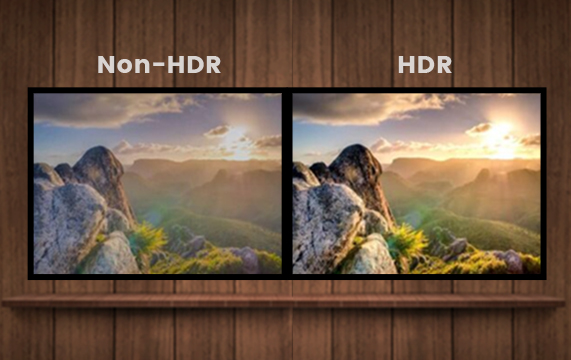
Interoperable Master Format (IMF)
Pulsar has the most comprehensive support for IMF packages. Some of the key capabilities include:
- Support for Application# 2E and SMPTE TSP 2121
- Package validation
- Supplementary package support
- CPL and OPL based validation
- Sidecar composition map validation
- Photon integration
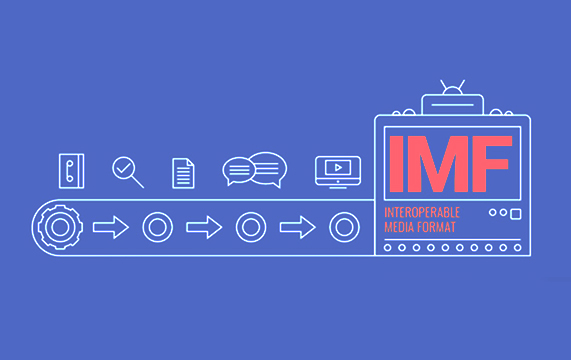
VOD and Adaptive Bitrate
With built-in support for adaptive bitrate formats as well as fragmented MP4, Pulsar allows users to automate the QC of Video-on-demand assets. Key capabilities include:
- Formats. MPEG-DASH, Apple HLS and Microsoft Smooth Streaming
- Encrypted packages support.
- Auto-assignment of different QC templates to different encoding profiles.
- Adaptive bitrate package specific checks to help validate the integrity of ABR packages.

Compliance
Ensures that your content is compliant with country regulations as well as against your customer specifications.
- Photosensitive Epilepsy using Harding PSE engine & get a Harding certificate for every job.
- Compliance with Audio loudness against CALM act, EBU R128 and OP-59 recommendations.
- Compliance with legal luminance & chrominance range or RGB Gamuts.
- Compliance against presence of Emergency Alert System (EAS) messages in the content.
- Compliance against Netflix, iTunes, DPP, ARD-ZDF and many other organizations using our ready-to-use factory templates.

Track Layout
Many content application such as Advertisement content delivery, requires certain content segments to be present at head and tail of the content. These content segments may include color bars, black frames, freeze frames, slates, audio mute, tones and silence. You can setup your custom track layouts and validate the overall structure. This can be done in conjunction with the template checks.
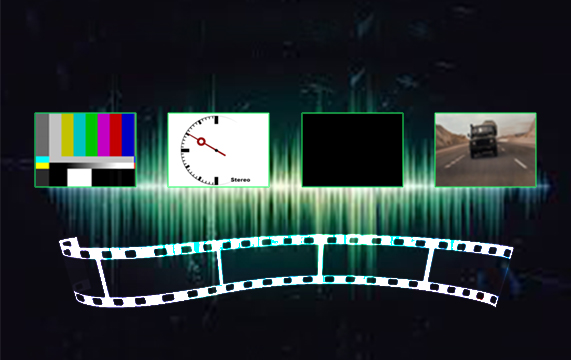
Our Customers

















Wide range of checks

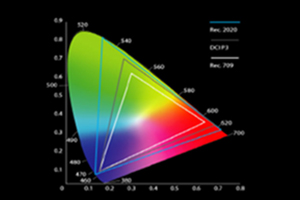
Color Gamut
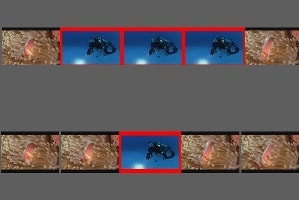
Flash Frames

Audio Loudness
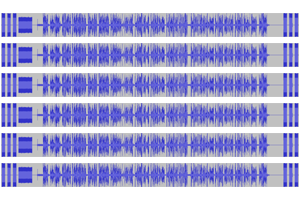
EAS

Active Region

Photosensitive Epilepsy
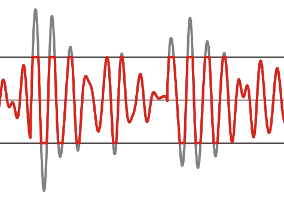
Audio Peaks
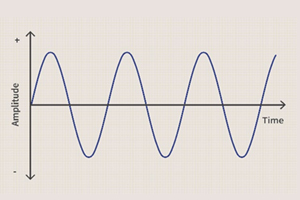
Audio Test Tone
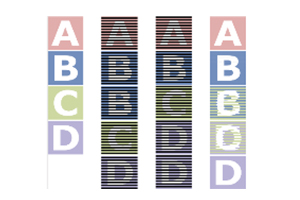
Cadence

Language ID
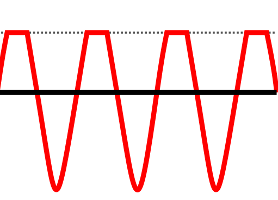
Audio Clipping
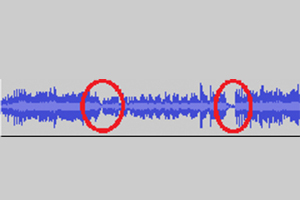
Audio Drops

Color Gamut

Active Region

Cadence

Flash Frames

Photosensitive Epilepsy

Language ID

Audio Loudness

Audio Peaks

Audio Clipping

EAS

Audio Test Tone

Audio Drops
Formats & Verification Checks

Formats
Container: MXF, GXF, LXF, MOV, MP4, 3GPP, MPEG-2 TS, MPEG-2 PS, FLV, WMV, AVI, Matrox AVI, WAV, BWF, AIFF, DPX, JP2, TIFF, Smooth Streaming, HLS, MPEG-DASH, IMF, DCP (encrypted and unencrypted), AS-02, AS-11, Elementary
Video: H.265, H.264 (incl. AVC-Intra 50/100 and SONY XAVC), MPEG-2 (incl. D10, XDCAM, HDCAM, IMX-30/50), VC-1, DV (incl. DVCPro25, DVCPro50, DVCPro100/HD), Avid DNxHD (VC-3), Avid DNxHR, Apple ProRes 422 (HQ, SD, LT, Proxy), ProRes 4444, Canopus HQ/HQX, JPEG-2000, Uncompressed (RGB, YUV)
Audio: LPCM, AES3, AC3 (DD), SMPTE 302M, E-AC3 (DD+), MPEG-1/2, AAC, HE-AAC, WMA (Standard & Pro), Dolby-E, Audio stems
HDR: HDR-10, HDR-10+, Dolby Vision
Verification Checks
General: Compliance, Factory templates – Netflix, DPP, Amazon Prime, ARD-ZDF, Loudness (R128, CALM, OP-59, ARIB), iTunes & CableLabs
IMF/DCP: CPL based analysis, Package validation, CPL cross checks, CPL checks, PKL cross checks, OPL checks, Assetmap check, IMSC checks, Sidecar checks, Netflix Photon validation
ABR: Playlist cross checks. Segment cross checks, Profile cross checks, Encrypted Packages
Video Parameters: Codec, Video Format, Color space, Chroma Format, Color Matrix, Color Primaries, Transfer Characteristics, Scan Mode, Duration, Frame Rate, Resolution, Display/Pixel Aspect Ratio, GOP Length, GOP Type, Field Order, Frame Sizes, Buffer Size, Bitrate (CBR/VBR), Profile/Level, Entropy Coding, Reference Pictures, MBAFF, Timecode Discontinuity, Timecode frame drop, 2020 Color Space, Progression Order, Wavelet Transform
Video Quality: Black Frames, Blockiness, Brightness, Cadence, Chroma Hits, Chroma Line, Clipping, Colored Frames, Color Bars, Color Gamut, Combing, Credit Roll, Camera Dead Pixels, Dead Pixels, Digital Hits, Field Dominance, Flash Frames, Freeze Frames, Luma/Chroma levels, Half/Full lines, Bar Artefacts, Letter/Pillar Box, Framing Issue, Photosensitive Epilepsy (Harding)(SDR and HDR), Low Video Level, Low Black Level, FBI Warning Card, URL detection, Media Offline, Slate, Postal Stamp
HDR Parameters: HDR Formats, Reporting of HDR10, HDR10+, and Dolby Vision metadata
Static Metadata: Verify (display color primaries, mastering display luminance, content light level)
Dynamic Metadata: Compliance, Validate HDR10+ metadata (MaxSCL, Average Max RGB, Distribution values, Tone mapping information, Targeted system display maximum luminance), Validate Dolby Vision metadata (Metadata version, shot must not contain <0,0,0> in level 1 metadata, Detect duplicate dynamic metadata, Crosscheck canvas aspect ratio, Crosscheck Video track information, Crosscheck (Calculated/metadata) Image aspect ratio
Audio: Audio Codec, Sampling Frequency, Quantization Bits, Channels, Bitrate (CBR/VBR), Drops, Silence, Mute, Test Tones, Loudness (R128, CALM, AGCOM, ARIB, Speech Gated), Loudness Range, Dialnorm, Sample Peak (DBFS, PPM), True Peak, Dual Mono, Clipping, EAS tone, Phase Mismatch, Language ID, Mosquito Tone, Quasi Peak
Container: Conformance, Format, File Size, Media Info metadata dump, File name validation, MD5, SHA1 Hash, No of streams, Incorrect extension, Selective track analysis
MXF: AS-11 descriptive metadata, Version, Operational pattern, Timecode presence/track count/mode/start value/source, Index table presence/location/completeness/correctness, Origin parameters, KLV alignment grid/fill elements, Partitions validity/Status/Completeness/Instance count/Index table presence/Essence presence/Max length, Essence wrapping/external check/referencing/partition strategy, Audio track numbers/element size/channel count/configurations, Descriptive metadata presence/scheme, Run-in sequence, Random index pack, Segmentation track, File package count, Index edit rate, Index duration, Audio/Video sample rate, Audio/Video stream type, Audio/Video edit rate, Video line map, Stored width, Stored height, Display width, Display height, Aspect ratio, Component depth, Horizontal sub-sampling, Vertical sub-sampling, System item presence, Block Align, Channel status mode, Fixed channel status data, Stored F2 offset, Display F2 offset, Sampled X/Y offset, Display X/Y offset, Identical GOP indicator, Edit unit byte count, Slice count, Dark metadata, Timecode frame drop, Audio locked/unlocked status, Audio ref level, Sampling rate, Quantization bits, Average bytes per second, Index start position, Single index location, Single essence location, Forward index direction, Image start/end offset, Color siting, Padding bits, Black ref level, White ref level, Color range, Constant B picture flag, Single sequence, Low delay
Transport Streams: SCTE35, Program count, PCR Jitter, Packet Length, PID Usage, PIDs, PID Bitrate, Packet Intervals, PAT checks, PMT checks, Stream checks, PES checks, Language Metadata Verification
QuickTime: Checks and correction for PASP, FIEL, GAMA, CLAP, COLR. Channel Configuration, Track properties, Movie properties, Language Metadata Verification, Check disabled tracks, Check multiple codec entries, Check Timecode properties
Cross Checks:
Video-Container: Width, Height, Frame rate, Aspect ratio, Bitrate, Profile/Level, Scan mode, Field order, Chroma format, GOP type, GOP length, B-pictures, Low delay, Duration, Component depth
Audio-Container: Sampling frequency, Bit depth, Channels, Bitrate, Duration
Audio-Video: Duration in meta-data, Actual duration
Correction: Loudness correction for PCM and MPEG -1 L2 audio, QuickTime meta-data
Meta data: Closed Captions (608/708) presence/conformance/format/location, Line 21 VBI Caption Decode, AFD, Bar, V-Chip, Teletext
Reference-based Analysis: Ref-Q, SSIM, PSNR
Rapid Checks
File Rules Incorrect extension, File Size, Invalid file characters
Video Codec, Video Format, Chroma Format, Colour Matrix, Scan Mode, Duration, Frame Rate, Resolution, Display Aspect Ratio, Pixel Aspect Ratio, Profile/Level, Bit Depth, Buffer Size, Entropy Coding, Reference Pictures, MBAFF
Audio Codec, Sampling Frequency, Quantization Bits, Channels, Profile
Container Format, No. of Video/Audio streams, Track Duration, PASP, GAMA, CLAP, FIEL, COLR, Channel Configuration
Workflow Integration

Other Quality Control Solutions

We additionally offer the following QC solutions for Audio, Video, Captions & Subtitles for Cloud & On-premise applications:
Pulsar PPU
Pulsar PPU is a usage based on-premise File QC system and provides the same QC capabilities as Pulsar. Users can pay on adhoc basis purely according to the content volume processed or they can sign-up for a monthly subscription.
Customer Testimonials

Pulsar Editions

| Professional | Standard | Basic | Pay-Per-Use | |
|---|---|---|---|---|
| No of simultaneous files | 4 | 1 | 1 | 1 |
| Maximum cores | 32 | 8 | 4 | 4 |
| Verification Unit cluster | Yes | No | No | No |
| Watch Folders | Yes | Yes | Yes | No |
| Web Service API | Yes | Yes | No | No |
| Media Player * | * | * | * | * |
| Controller Plus * | * | No | No | No |
| DD/DD+ * | * | * | * | No |
| Dolby-E * | * | * | * | No |
| Nielsen watermark * | * | * | No | No |
| Loudness correction * | * | * | * | * |
| VC-1, WMA | Yes | Yes | No | No |
| JPEG-2000 | Yes | Yes | No | Yes |
| Fast JPEG-2000 | * | * | No | Yes |
| HEVC | Yes | Yes | No | Yes |
| Adaptive Bitrate Formats | Yes | Yes | No | No |
| Harding PSE * | * | * | * | * |
| IMF/DCP | Yes | Yes | No | Yes |
| Image sequence | Yes | Yes | No | Yes |
| HDR | Yes | Yes | No | Yes |
| Track Layout | Yes | Yes | No | Yes |
| Audio Language Identification | * | * | * | No |
* Optional feature
Verification Unit Cluster: Ability to cluster multiple Verification Units together to process a larger number of files simultaneously.
Controller Plus: Ability to provide automatic fail-over redundancy for the Pulsar Controller.
Media Player: Media player linked with Pulsar reports for visual review.
Audio Language Identification: Auto-identification of audio language from audio media data.
-
Perpetual license
-
Ability to process four files at a time
-
Can use up to 32 Cores
-
Fastest Edition of Pulsar
-
Ideal for high volume operations
-
Perpetual license
-
Ability to process one file at a time
-
Can use up to 8 cores
-
Ideal for normal operations
-
Perpetual license
-
Ability to process one file at a time
-
Can use up to 4 cores
-
Ideal for low content volume operations
-
Usage-based pricing
-
No permanent license
-
Only solution of its kind in the market
-
Ability to process one file at a time
-
Capable of Harding PSE
-
Ideal for low volume occasional use
Recent Blog Post

Media Offline: What is it and how to deal with it?
What is media offline error in video content, and how you can detect it using automated QC solutions?
Caption/Subtitle QC vs. Authoring
What is the difference between a Caption Authoring system and a Caption/Subtitle QC system? Do you need both of them as a content creator?
CapMate 101 – Caption/Subtitle Files Verification and Correction Solution
Learn about Capmate – our innovative and comprehensive cloud native caption QC software that provides verification and correction of captions and subtitle files.
Video Resources













